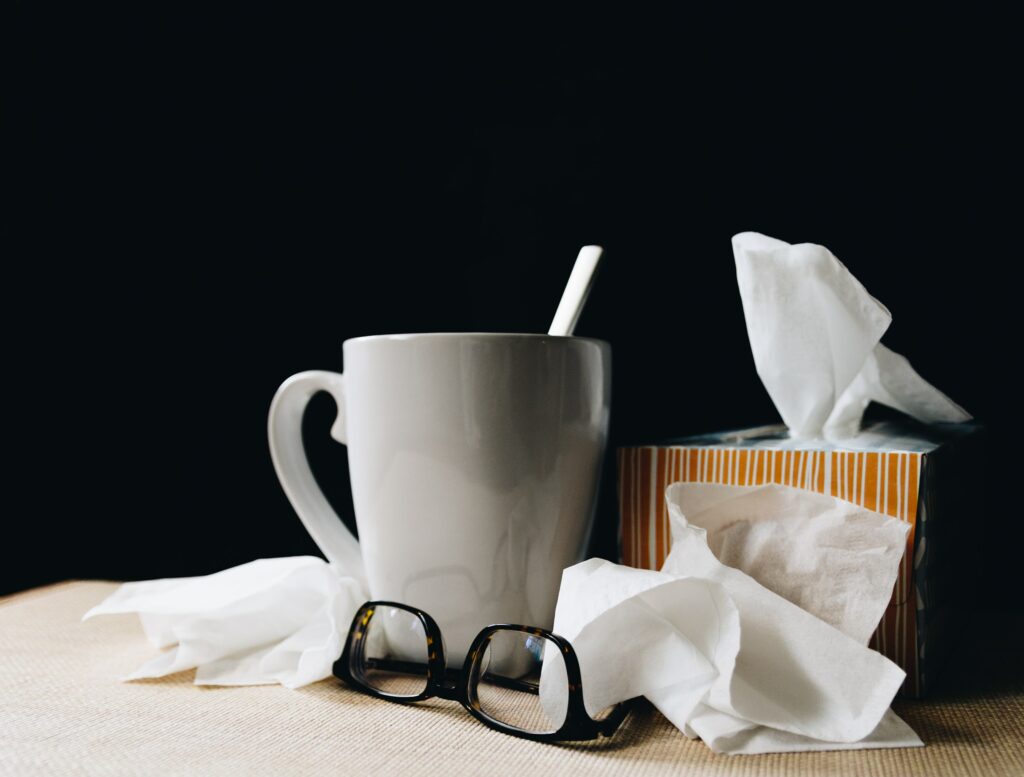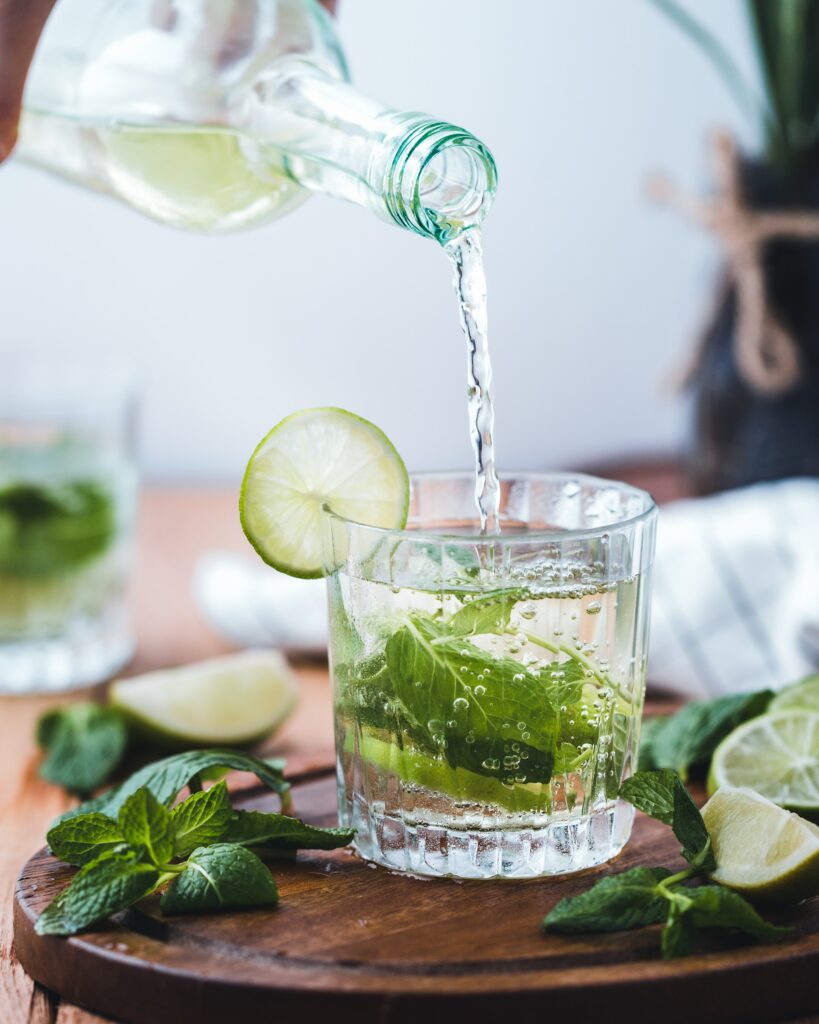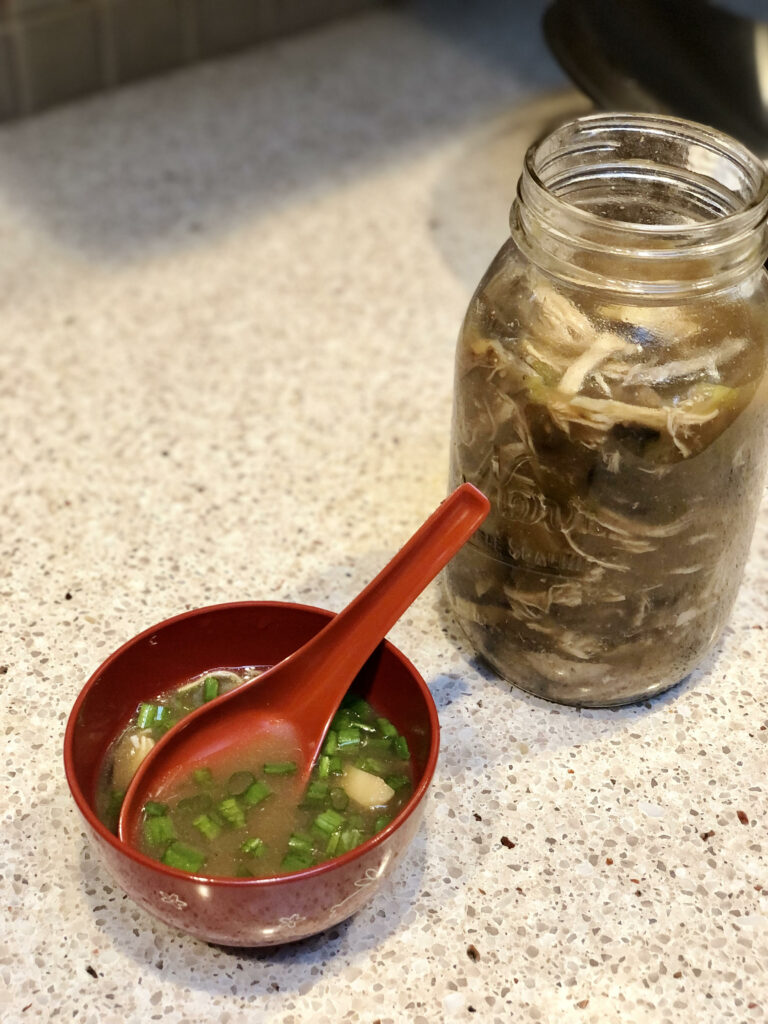On the heels of getting over a massive cold, I feel motivated to write this blog post as we head into the winter months. When you are in the throes of illness, all you want is to maximize your chances of getting better.
It goes without saying to stay home, get rest, and see a physician if symptoms worsen or a fever develops. Rule out a bacterial infection and of course, COVID-19. But if it’s just a common cold with flu-like symptoms, and your cough and congestion will not go away (despite the nighttime and daytime Mucinex regimen), here are some of my go-to tips that really work.
Non-Medication Remedies
I have vivid memories as a kid of a vaporizer blasting steam into my room in the middle of the night. At the hint of any runny nose, out would come the good old plastic vaporizer with barrel of Morton’s salt in tow. Steam is super helpful!
- Add steam to the air to alleviate congestion: adding moisture to the air in the form of a humidifier or vaporizer can play a role in reducing dryness and discomfort. To get a sense of the main differences between a vaporizer and humidifier and when to use them, this article by Medical News Today is a great reference.
- Take a hot shower to alleviate congestion: I am always shocked as to how effective this is, but without fail, the steam really helps reduce pain at least acutely.
- Drink fluids: when feeling sick we are not fueling or hydrating the way we would normally (most times, we are consuming LESS than usual). Food, especially produce, contains water and adds to our daily hydration status. As a result, when we aren’t eating as much, our hydration status is lowered. Additionally, when we breathe and sweat, we are losing fluids. Since temperature is dysregulated when sick, sweat losses might be greater than normal and therefore, a further increase in fluids is warranted.
- How much should we drink? Drinking fluids – chicken soup, tea, coffee, etc. – will help thin out phlegm and mucus (source). How much? According to the U.S. National Academies of Sciences, Engineering, and Medicine, an adequate daily fluid intake depending on one’s size, age and activity level comes out to about 15.5 cups (3.7 liters) per day for men and 11.5 cups (2.7 liters) per day for women (source).
- Rest and get sleep: I know no one wants to hear this one, but resting is a natural remedy, so it has to go here. Sleep heals. Period.
- Neti pot and/or saline nasal rinses: Neti pot is a type of “saline nasal irrigation” (SNI) treatment, and when used properly can help relieve cold symptoms (source).
- Witch hazel: if temperature is slightly elevated, this treatment always helped cool me down and was extremely soothing when I was a child, especially a witch hazel that contains menthol and eucalyptus.
Supplements
According to the Physician’s Desk Reference (PDR) for Nutritional Supplements (2nd edition) and Herbal Medicines (4th edition), there are a number of evidence-based options that can decrease the severity of illness.
- Echinacea Purpurea: is considered an herbal medication and has been shown to decrease the duration and severity, when taken at the onset of symptoms. When consumed in a drop-form, the preparation is to place a few drops into water or tea and consume five times per day. As always, check first with a physician as there are contraindications, including those who might have an overactive immune response, as in the presence of an autoimmune disease. Echinacea should not be used when pregnant.
- Vitamin C: also known as ascorbic acid, is a nutritional supplement best known for its antioxidant properties. About 90% of vitamin C in the average diet comes from fruits and vegetables. Unless there is an iron overload (since iron enhances the absorption of vitamin C), there is currently no credible evidence that a “pro-oxidant” effect exists in humans, which suggests that overdoing vitamin C could be damaging. The suggested dose to attain a protective effect is to get the minimum Dietary Reference Intake (DRI) for vitamin C (source – scroll to table-1), and at least 200mg per day when sick. Eating fruits and vegetables is also sufficient without the use of a supplement.
- Zinc: let’s talk about zinc, which is an essential element and has significant adverse health effects when there is a deficiency in the body. There are some claims per the PDR that zinc can improve symptoms of the common cold, but not all studies have substantiated this. A typical dose of zinc when sick is about 15mg daily, and at a minimum, is slightly higher than the Dietary Reference Intake (DRI) for zinc (source – scroll to table-1). Lozenges or syrup can also be used, especially to soothe coughs. Zinc is found in the highest amounts in meat (especially red meat), shellfish (especially oysters), firm tofu, legumes (especially when heated, soaked or sprouted), seeds (especially hemp, squash and pumpkin), nuts, dairy, eggs, mushrooms, and whole grains (especially oats).
Herbal and Food Remedies
We cannot underestimate the true power of produce, which contain high amounts of antioxidants, vitamins and minerals needed to heal. Add produce in the following ways:
- Eat a few servings of raw produce everyday: A medium size orange will provide almost 70mg of vitamin C, which essentially meets the recommended daily allowance (RDA) for most populations in a day
- Add lemon to hot tea: the jury is still out with regards to conclusively recommending hot tea with lemon and honey as a way to soothe a sore throat, but anecdotally, I would say it does help (if not for any other reason than to increase hydration status).
- Soups, smoothies and popsicles: all of these will help increase hydration and produce consumption. If soups and smoothies are made with nutrient-rich ingredients such as garlic, root veggies, ginger, and if popsicles are made with whole fruit, there is the added benefit of additional phytochemicals, vitamins and minerals. Some ideas:
- Check out my previous blog post for a yummy berry smoothie.
- For delicious fruit-based popsicles, the Minimalist Baker is a favorite recipe blog of mine, and she does a good no added sugar popsicle post on how to make these.
- For a soothing soup recipe, see my recipe that packs huge chunks of ginger into a yummy Miso Chicken-Mushroom Soup. Picture below!
Enjoy – and hope you feel better soon 🙂





0 Comments